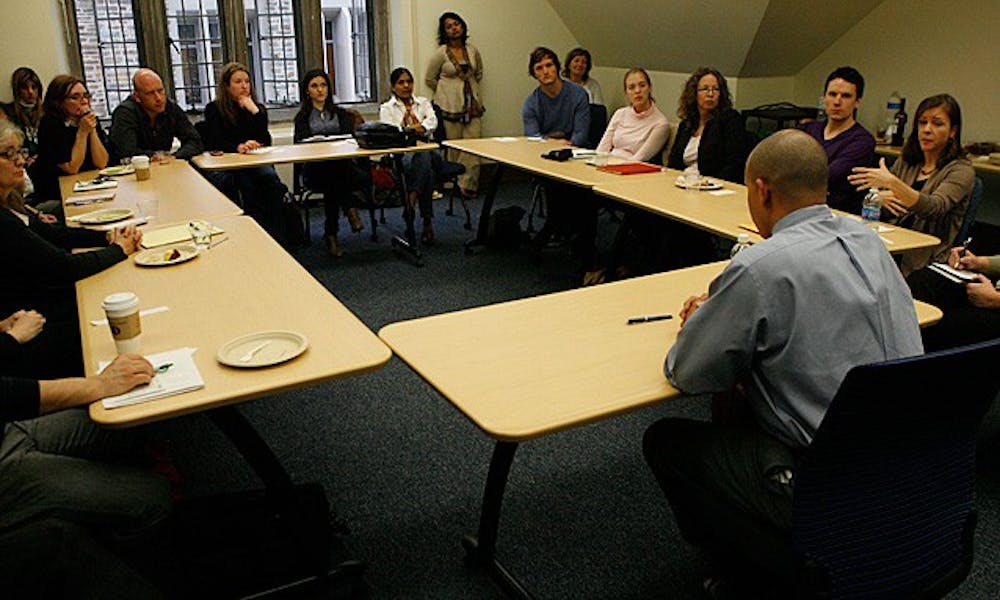University foreign language departments are becoming even more pertinent as Duke expands abroad, but continued spending cuts in Durham are causing stress among language faculty.
Lee Baker, Trinity College dean of academic affairs and associate vice provost for undergraduate education, led a forum titled “Curriculum 2000 in 2011” Tuesday as part of the Department of Romance Studies’ annual Language and Pedagogy Discussion Series. Although the forum was intended to stimulate discussion about curriculum, the conversation turned to challenges posed by budget constraints and nationwide cuts in foreign language programs.
“The [national] trends are to go against the language requirements and reduce faculty in language departments,” Joan Clifford, assistant director of the Spanish Language Program, said in an interview Tuesday. “This is an ongoing concern for us.”
Even though other universities are often quick to cut foreign language departments, Baker said language learning will remain an integral part of Duke’s liberal arts curriculum, especially as the University continues its commitment to globalization.
He added that more undergraduates are studying foreign languages than ever before, noting that “students know, ‘I need a language to do something better.’”
Although faculty members are pleased that student interest in foreign language classes remains steady, they questioned whether budgetary restrictions will prevent departments from fully accommodating students’ needs, especially with class size regulations.
Currently, language courses taught by non-regular rank faculty members must have at least eight students enrolled or the class is canceled. Baker said funding a class with less than eight students is an irresponsible use of resources.
Deborah Reisinger, assistant director of the French Language Program, said in an interview Tuesday that these restrictions have the potential to put professors in a position where they cannot pay their rent. If a class is unexpectedly canceled because of low enrollment, the University can change the professor’s contract, she explained.
“The caps of enrollment in courses affect what you can and can’t do,” she said. “That’s your livelihood. You were expecting a certain salary, and the University reserves the right to change your salary.”
Carolyn Lee, director of the Chinese Language Program, praised Duke’s study abroad programs for keeping students involved with their languages but added that the financial constraints make it difficult to maintain high-quality programs both in Durham and abroad.
“Division of labor has become a very challenging situation,” Lee said. “You’re compromising human resources when it comes to the budget.... How are you going to work within the constraints of the program and still get the meat of the instruction?”
Baker called the language departments’ challenges a “tug-of-war” of resources, noting the difficulties of balancing quality of professors with quantity. He reassured faculty members, however, that language instruction will remain an important part of the Trinity College curriculum.
“If you want to really have an impact, language acquisition and learning is critical,” Baker said. “Duke has made a commitment to internationalization and globalization, and that’s not going away any time soon.”
Get The Chronicle straight to your inbox
Signup for our weekly newsletter. Cancel at any time.

